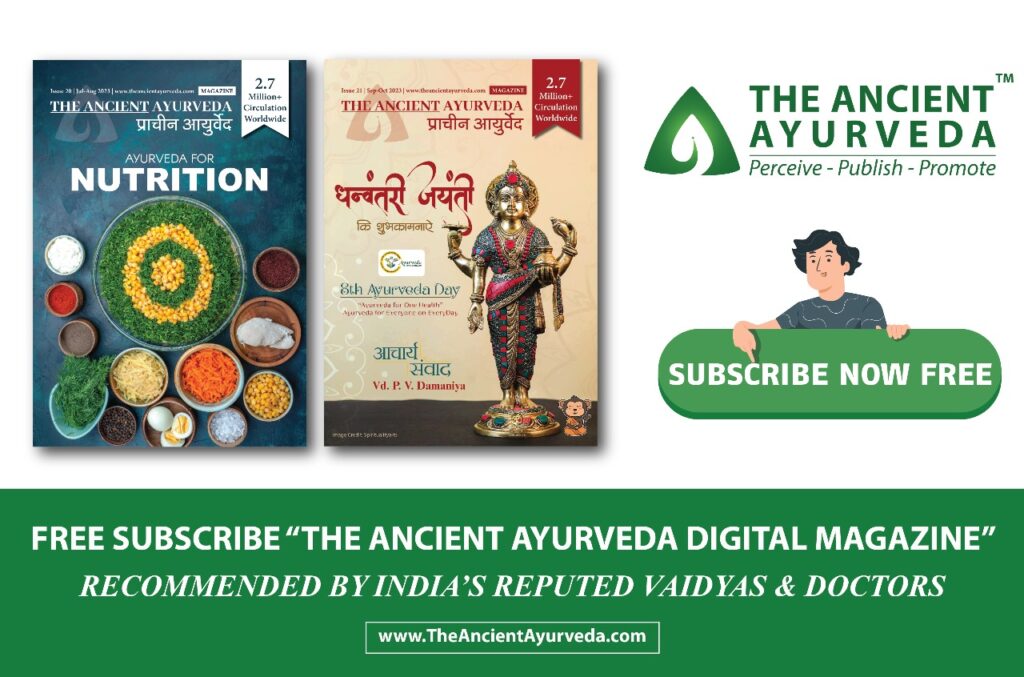When a blossomed flower, stays gloomy it hurts for our eyes. But it pains more to the flower. So as a female body, during the 3rd stage of life, her hormones changes and she goes through a depressed world physically and mentally and the doctors named it as menopause.
Menopause is a period during which the menstrual cycle usually becomes irregular and subsequently ceases, ovulation fails to occur, and female sex hormones diminish to almost none. It demands a woman to re-adjust her life which was previously stipulated by hormones to one devoid of them.
Every female life must go through this permanent and irreversible phase of reproduction called menopause. This is diagnosed after 12 months of amenorrhea. Menopause symptoms are an alarming call to more sincere attention to elderly women’s health.
In Ayurveda Menopause is said as Jarapakva avasta and Rajonivartti Lakshana.
Rajonivartti Lakshanas are a group of symptoms produced by degenerative changes in body. Vata Dosha is dominant in vriddha avastha (old age) so the symptoms of Menopause will be more predominant with vata like insomnia, anxiety, urinary symptoms and osteoporotic etc. Along with that pittaja symptoms like hot flashes, irritability are also been seen. Throughout a woman’s reproductive life about 400 of primordial follicles grow into mature follicles and hundreds of ova degenerate. At about the age of 45 years, only a few primordial follicles remain to be stimulated by FSH and LH, and the production of oestrogen by the ovary is decreasing as the number of primordial follicles approaches zero. When oestrogen production falls below the critical value, oestrogen can no longer inhibit the production of gonadotropins FSH and LH. This indicates the
disturbance in the hypothalamic-pituitary ovarian (HPO) axis.
AGE OF MENOPAUSE
According to our Ayurvedic classics, the age of Menopause is 50 years. At the age of 32 to 50 years woman is called as the adhirudha and after 50 years she is called as vriddha. Aacharya Arunadutta opines that the age of menopause is not fixed, there may be some variations. The clinical diagnosis of menopause is confirmed following stoppage of menstruation for 6 (or 12) months consequently with no other pathological cause which means a woman is said to attain menopause retrospectively.
The age of menopause appears to be genetically determined rather than age of Menarche (onset of menstruation), number of pregnancies, last pregnancy, lactation etc. Other factors that may influence include, the general state of health and the climate in which she lives.
The period of hormonal changes before Menopause is also known as menopausal transition and this can be uneventful or can be a time of significant symptoms. This period may have an insidious or relatively abrupt onset, usually in the mid to late forties.
SYMPTOMS OF MENOPAUSE
Menopause forces a woman to re-adjust her life from one that has been physiologically stimulated by oestrogen and progesterone production to one that is devoid of these hormones. This led to occurrence of marked physiological and psychological changes like irregular periods, vaginal discharge, extreme flushing of skin, irritability, fatigue, anxiety, occasional various psychotic status, decreased strength and calcification of bones, weight gain and slow metabolism thinning of hair, dry skin, loss of breast fullness etc. Signs and symptoms may vary among women. Skipping periods during menopause is common and expected. Often menstrual period will skip a month and return or skip several months and then start monthly cycles again for a few months. Period also tends to happen on shorter cycles.
When analyzing the symptoms of menopause, hot flashes can be taken as atisveda and mood swings can be taken as atikrodha and these are coming under pittaja disorder, pain in the vaginal region, dryness, joint pain, fracture, sleep disturbances etc can be categorised as vataja disorders. Apart from that, vaginal discharge, itching etc coming under kaphaja disorder also happens in menopause.
MANAGEMENT OF MENOPAUSE
Menopause is a natural phenomenon that does not need any treatment unless the symptoms are affecting the daily routine of a woman physically or /and mentally.
Nobody can stop the aging process but can delay the onset of symptoms of ageing through proper practising of dinacharya and ritucharya mentioned in Ayurvedic classics. Similarly, the stoppage of menstruation is a natural phenomenon that happens in females at the age of 45 to 50 years, but Ayurveda can help her to accustomed to a healthy life without hormones and prevent the severe symptoms of Menopause.
The human body is comprised of three doshas. In childhood kapha dosha is predominant, in adulthood pitta dosha is predominant and in old age vata dosha is predominant. So, the treatment should be concentrated mainly in pacifying vata dosha, along with that the symptoms of pitta and kapha should also be looked through.
Old age is the time of balakshaya, dhatukshaya, etc so we also must consider this during treatment.
Following proper diet (including vata pitta hara level that is warm, cooked fresh and unctuous), avoiding dry, cold fermented stale food as well as caffeine and alcohol, administration of nasya according to doshas and lakshanas, mild massage with vatahara thailas, shirodhara for psychological disturbances and vata shamana, use of Brhmana and Rasayan drugs like mandukaparni rasayana, use of drugs that support the body such as Shatavari is also beneficial. Regular mild to moderate exercise, yoga, brisk walking, meditation, Pranayama are also so good. Daily self-massage with warm oil helps to pacify vata as well as give relaxation to the body and mind.
Menopause is not a disease, but it is a stage of life like old age. The woman has to prepare herself to approach Menopause and manage the symptoms. She has to give more sincere attention to her health during this time and consult a doctor whenever needed.

